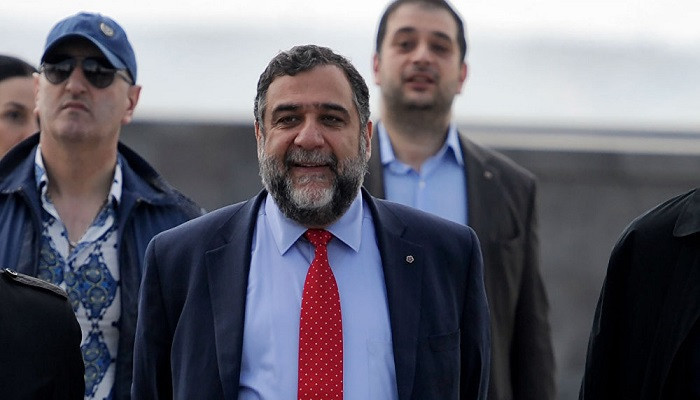Armenians should grasp their chance to transform their homeland
 These past few weeks have brought unprecedented worldwide attention to Armenia, a landlocked former Soviet republic in the South Caucasus. Frustrated by an unfair society and an inefficient economic model, tens of thousands of citizens took to the streets to peacefully protest for a better and more democratic future. After nationwide strikes, prime minister and former president Serzh Sargsyan capitulated to the overwhelming voice of the Armenian people by resigning unconditionally. To his credit, he ceded control after 10 years in office without bloodshed or civil unrest. On Tuesday, Nikol Pashinyan, the opposition politician who led this “velvet” revolution, was declared prime minister after a decisive vote in parliament. This closed a long, difficult chapter and opens a new one filled with opportunity and uncertainty. Armenia can become a beacon for other nations if it successfully transforms its government while remaining peaceful and abiding by its new constitution. It’s important to note that this is a watershed moment for Armenia. A quarter century after gaining its independence, the young republic remains vulnerable, as does the state of the Armenian identity globally. We have a rare and unexpected opportunity to transform our country into a vibrant, modern, secure, peaceful and progressive homeland for a global nation. It’s important to note that this was not the victory of one man, but rather of an entire nation and particularly of our youth. I remember, as a young man, I was also frustrated by the status quo and took part in similar mass protests 30 years ago. The changes that did come fell short of expectations. This time must be different. The disaffected youth must be heard so that they agree to remain in Armenia and contribute to the success of the nation. If euphoria turns into disappointment yet again, we could witness the emigration of the entire next generation. Our small and fragile economy could not withstand a further brain drain. Moreover, those who have taken to the streets in celebration must be realistic. Armenia’s problems won’t be solved overnight. No one should believe those who promise to rapidly attract billions of dollars of investment. Instead, we have to increase our competitiveness as a country to thrive within the global economy. There is no doubt Armenia presents an attractive investment opportunity: its rapid growth in the early part of the 2000s led the World Bank to call it the Caucasian tiger. Armenia’s people are innovative and creative; it is the perfect bridge between the EU, Iran and the Eurasian Economic Union of Belarus, Kazakhstan and Russia, and we have the unique expertise and resources of a global network of emigrants. As a proud member of that diaspora, I have been seeking to foster systemic change in Armenia on behalf of the new generation for many years. That is why, together with my Armenian-American partner Noubar Afeyan, I co-founded the Armenia 2020 initiative to draw on global knowledge and create scenarios through which the country could achieve a vibrant future. Economic development will require a long-term strategy that helps rebalance the economy toward resilient, inclusive and environmentally sustainable growth. It is abundantly clear what Armenia’s new prime minister must do. First, Mr Pashinyan must harness the skills and enthusiasm of Armenians across the globe, and encourage them to contribute to accelerating Armenia’s growth. Less than one-third of the world’s 11m Armenians lives in the country. Now is the ideal time for our homeland to tap its émigrés and ask for their help in building long-term prosperity. Second, he must faithfully carry out the mandate he has been given. Armenian citizens want a vibrant, affluent country committed to justice, freedom and equal opportunity. Our people do not want one oligarchy to replace another. The new government needs to be qualitatively different from the previous ones. |

Decision on financial support for Ukraine must be taken at 18-19 December summit, says Von der Leyen
222Yesterday, 16:20
Ukraine Plan Calls For Enhanced Military, With U.S. and European Backup
277Yesterday, 14:08
Under Ukraine security guarantees, Western troops could repel Russian forces post-ceasefire, says Germany's Merz
267Yesterday, 13:08
Iran summons Cyprus ambassador over interventionist stance
296Yesterday, 12:41
Trump: Steve Witkoff is a great dealmaker (video)
305Yesterday, 10:35
Trump adds seven countries, including Syria, to full travel ban list
302Yesterday, 10:17
